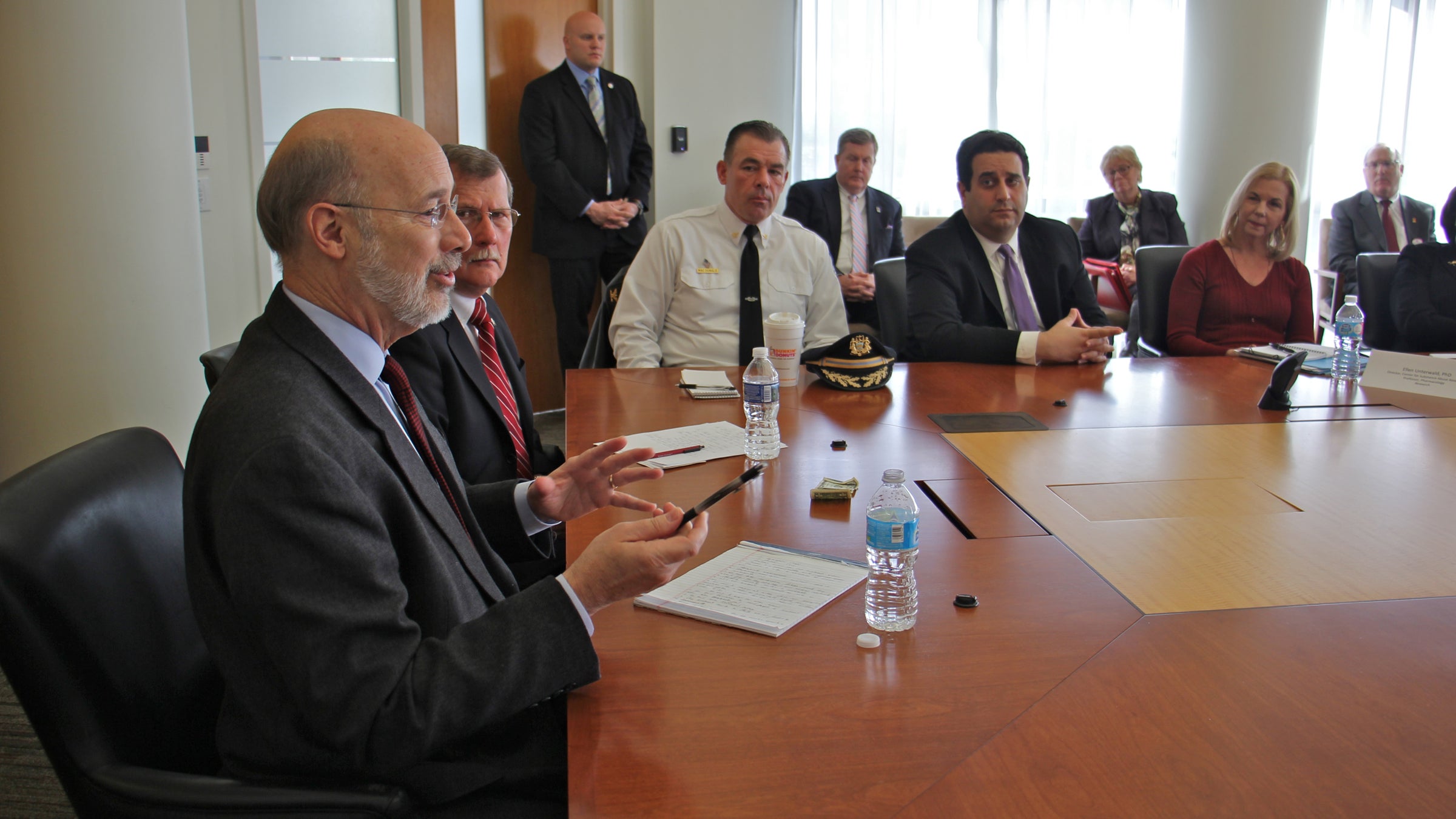Gov. Wolf hears feedback on opioid crisis in Philly

Gov. Tom Wolf presides over a meeting at Temple University's medical school discussing ways to combat opioid addiction. (Emma Lee/WHYY)
Gov. Tom Wolf, who has made fighting Pennsylvania’s opioid crisis a priority during his first two years in office, listened for feedback in Philadelphia where city health officials say about 900 people died of overdoses last year.
The round-table discussion took place at Temple University’s Lewis Katz School of Medicine and included a small group of medical providers and local lawmakers.
Daniel MacDonald represented law enforcement as chief inspector of the Philadelphia Police Department’s narcotics unit. As the opioid crisis has grown over the last decade, MacDonald said city police and firefighters are frequently required to administer the overdose ‘antidote’ Narcan — sometimes two or three times in the same day to the same individual.
He told Wolf his officers often encounter opioid addicts who got started down the road to addiction with legitimate prescriptions from their doctors.
“Cutting the supply chain off — if we could just find a way to stop the legal prescription drugs from getting into the hands of people in the way that they are, you could knock out 20-to-30 percent of the problem in the future,” said MacDonald, who is also a member of a new task force on the issue in Philadelphia.
Last fall, Wolf signed a bill limiting new prescriptions for opioid painkillers to seven-day supplies and adding more checks on prescribers. MacDonald urged the governor to consider shrinking that limit to three days as Massachusetts Gov. Charlie Baker has proposed (although he also has signed legislation setting a seven-day limit).
Ellen Unterwald, a professor of pharmacology at Temple, said giving patients fewer pills is a start, but thinks the long-term solution to preventing and treating addiction will be found in research labs where scientists are working on new medications that will relieve pain without the effects that lead to dangerous overdoses.
“They are the best pain relievers that we have,” Unterwald said of opioids. “They are very useful in the right situation, but we need to screen the patients, we need to counsel the patients, we need to educate the physicians and the dentists and all the health providers that use them.”
“But we do need to continue our efforts in identifying new, non-addictive pain relievers that work just as well as opiates,” she added.
Members of the round table also expressed interest in forming a coalition that would include local doctors and hospitals, researchers, and smaller, community-based health agencies and drug rehabs. Susan Freeman, chief medical officer of Temple Health System, said bringing these organizations together could attract government funding and get more addicts the help they need to get clean.
“Right now… even if we find people who are at risk, we send them out to get help,” Freeman said. “We don’t wrap our arms around them and we really need to wrap our arms around these individuals in a very coordinated way and communicate between organizations so that people don’t fall through the cracks.”
WHYY is your source for fact-based, in-depth journalism and information. As a nonprofit organization, we rely on financial support from readers like you. Please give today.

